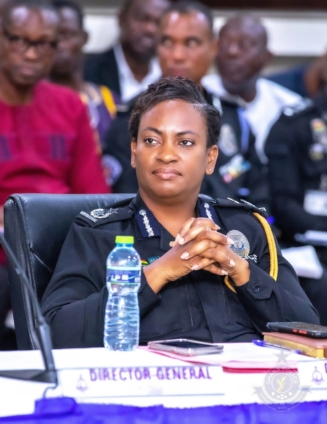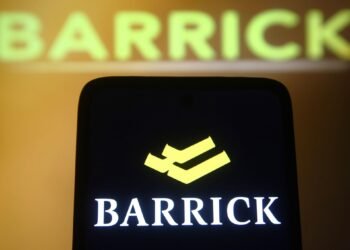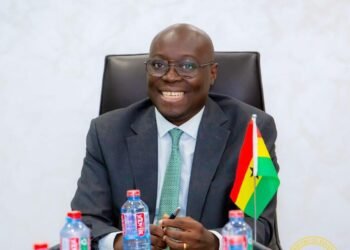A powerful transformation is underway in the lives of Kayayei girls across Ghana, driven by the mentorship initiative spearheaded by Chief Justice Gertrude Torkornoo.
The programme, which includes the establishment of Chief Justice Clubs and direct engagement by members of the judiciary, is shifting mindsets, opening educational pathways, and fostering personal growth among some of the nation’s most vulnerable girls.
“The judges themselves have contributed and they are supporting individual girls. They give school fees, monthly allowances, buy laptops, and support a lot of these girls”
Rev. Aku Xornam Adzraku-Kevi, PAYDP Director
Speaking about the impact of the programme, the Director of the Participatory Action for Youth Development Platform (PAYDP), Rev. Aku Xornam Adzraku-Kevi, explained that the Chief Justice’s initiative goes beyond motivation and speeches – it is hands-on, structured, and deeply personal.
“The Chief Justice mentorship program and other leadership sessions are programs that we use for the mind shifting,” Rev. Adzraku-Kevi stated, explaining how the mentorship programme and associated leadership sessions are designed specifically to change how Kayayei perceive themselves and their future.
She noted that as a result of these interventions, many of the girls have resumed their education, with some currently enrolled in Senior High School while others pursue apprenticeships. The mentorship approach has been complemented by individual judges who support the girls financially and emotionally, forming a rare and impactful network of guardianship within the judiciary.
Beyond support from the judiciary, the United Nations Population Fund (UNFPA) has also played a role in assisting specific girls, such as Jennifer, whose journey was particularly further aided by contributions from participating judges. The programme has created a model where institutions and individuals collaborate to uplift marginalized young women.

Nationwide Implementation
Rev. Adzraku-Kevi believes this model must be replicated and embedded into national policy. While praising the mentorship initiative’s effectiveness, she called for the development of a comprehensive, long-term strategy that goes beyond the current programme and integrates all aspects of the Kayayei’s needs – from education to protection.
“We are looking at the development of a national strategy. A strategy that cannot be overthrown by any government”
Rev. Aku Xornam Adzraku-Kevi, PAYDP Director
She recommended the creation of a “national database” to properly map the specific needs of all Kayayei girls, including those who have not yet been reached. This data, she said, would be crucial in tailoring support and ensuring that no girl is left behind. According to her, the key to success lies in “multi-sector collaboration.”
“After the database is developed, we believe that there should be a multi-sector collaboration where all sectors of government, private sector, individuals and all, put their efforts together, consolidated, and look at how Kayayei can be supported”
Rev. Aku Xornam Adzraku-Kevi, PAYDP Director
While highlighting the Chief Justice’s initiative as a template for change, Rev. Adzraku-Kevi stressed the importance of broader systems that offer “educational reintegration, continuous livelihood support, and protection from harmful traditional practices.” She also emphasized agricultural investment in the Northern Region, where many of the Kayayei originate, as part of addressing root causes.
In her words, any approach to helping Kayayei must be comprehensive, participatory, and sustainable. This includes recognising and respecting the “voices of the girls” themselves, especially in designing, evaluating, and implementing policies meant to support them.
“Efforts to assist Kayayei must move beyond impulse, must move beyond rescue, must move beyond reintegrating Kayayei back home to adopting participatory, girl-centered approaches that empower them”
Rev. Aku Xornam Adzraku-Kevi, PAYDP Director
Rev. Adzraku-Kevi said this to highlight the unfortunate stigma that continues to trail even those Kayayei who complete university, describing it as a barrier to full reintegration and empowerment.
While broader state actors, including DOVVSU and the CID, continue their work in building trust and protection mechanisms for Kayayei, the Chief Justice’s mentorship programme stands out as a practical model of state-led, people-centred development.

“Individuals in DOVVSU can also say I want to adopt a Kayayei, I want to take care of the Kayayei. This is very, very possible,” Rev. Adzraku-Kevi expressed, noting that it is time for institutions and people alike to take ownership of the girls’ futures.
DOVVSU’s Plan
The recent engagement that featured this discussion took place at the DOVVSU One-Stop Centre and included several high-profile participants.
The Director-General of the Criminal Investigations Department (CID), DCOP Lydia Yaako Donkor, interacted directly with the Kayayei girls. She was welcomed by the Director of DOVVSU, ACP Owusuaa Kyeremeh, as part of ongoing efforts to strengthen trust between law enforcement and vulnerable groups.
DCOP Donkor addressed the issue of child marriage, one of the recurring traumas shared by many of the girls present. “Children should be children and children should not be mothers.”
She further announced that DOVVSU would soon open a special desk dedicated to Kayayei-related issues, underscoring the need for sustained, institutional support for these girls.
This interaction was not only symbolic but substantive. The Kayayeis were given the platform to tell their stories – many of them marked by neglect, abuse, and early motherhood. These narratives served as a stark reminder of the need for tailored protection and empowerment mechanisms.
The Chief Justice’s mentorship initiative and this broader engagement of kayayei by DOVVSU offer a hopeful model. It’s a reminder that the transformation of Ghana’s most vulnerable girls is not only possible but already in motion – one mentor, one supporter, one policy at a time.
READ MORE: Bullgod Recalls Final Call with Dada KD




















